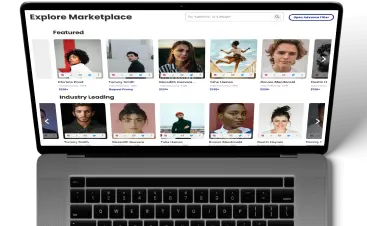What is a Community Manager?
A social media community manager manages and engages with an online community or audience on behalf of a brand, organization, or company. Their primary role is to foster meaningful interactions, build relationships, and cultivate a sense of community among followers or users on various social media platforms.
Roles and Responsibilities of a Social Media Community Manager:
- Engaging with Followers: Community managers actively engage with followers by responding to comments, messages, and inquiries in a timely and personalized manner. They foster dialogue, answer questions, address concerns, and provide support as needed.
- Content Creation and Curation: Community managers create and curate content tailored to the interests and preferences of the community. They develop engaging posts, stories, and multimedia content to spark conversation and encourage interaction.
- Community Moderation: They monitor discussions, comments, and user-generated content to ensure adherence to community guidelines and brand standards. They may moderate discussions, remove inappropriate content, and address conflicts or disputes within the community.
- Relationship Building: Community managers build and nurture relationships with community members, influencers, and brand advocates. They identify and engage with critical stakeholders, cultivate brand ambassadors, and foster a sense of loyalty and belonging among followers.
- Community Growth: They develop strategies to grow and expand the community, including attracting new followers, increasing engagement, and driving user participation. They may collaborate with marketing teams to create campaigns and initiatives to attract and retain community members.
- Data Analysis and Reporting: Community managers track and analyze key metrics such as engagement, reach, and sentiment to measure the effectiveness of community-building efforts. They use insights from data analysis to inform strategy and optimize community engagement tactics.
- Crisis Management: In the event of a crisis or negative feedback, community managers act as the frontline responders, addressing concerns, mitigating issues, and maintaining transparency and trust within the community.
How to Become a Community Manager:
- Develop Strong Communication Skills: Effective communication skills, both written and verbal, are essential for community managers to engage with followers and convey brand messaging effectively.
- Build Social Media Expertise: Community managers should deeply understand various social media platforms, their features, and best practices for engagement and content creation.
- Cultivate Empathy and Emotional Intelligence: Empathy, understanding of community members’ needs and concerns, and empathy-based responses are crucial for building meaningful relationships and resolving conflicts.
- Stay Updated on Industry Trends: Community managers should stay informed about industry trends, social media algorithms, and emerging technologies to adapt their strategies and remain relevant in a fast-paced digital landscape.
- Gain Experience Through Internships or Entry-Level Roles: Building experience through internships, entry-level positions, or volunteer opportunities in social media management or community engagement can provide valuable hands-on experience and skills development.
- Network and Seek Mentorship: Networking with professionals in the field and seeking mentorship from experienced community managers can provide valuable insights, guidance, and career opportunities.
By following these steps and continuously refining their skills and expertise, individuals can embark on a rewarding career path as a social media community manager.
Check out some other terms you may encounter in the Creator economy here.




